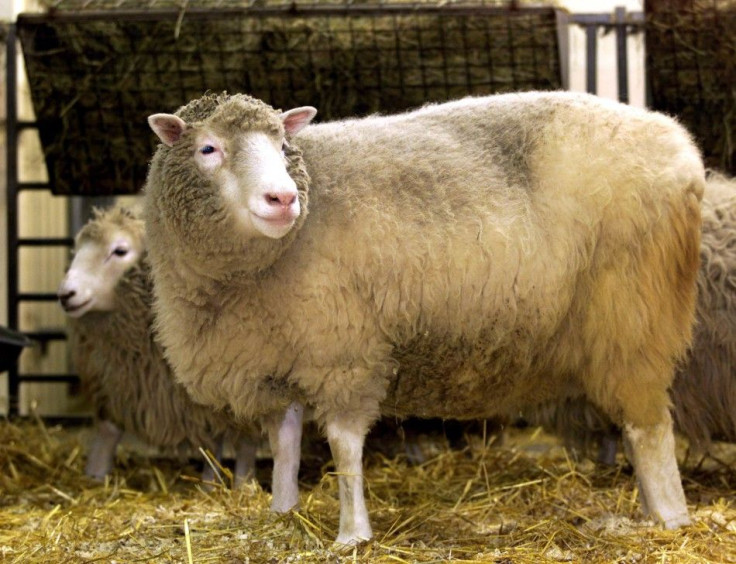Sheep Trained To Identify Celebrity Faces Display Primate-Like Intelligence

Sheep have been notoriously associated with the "herd mentality" insult. In fact, the Miriam-Webster dictionary, included into its list of recognized words this April, the word "sheeple," — which is a derogatory term directed at "people who are docile, compliant, or easily influenced," or just plain simple-minded.
But a major study published in the journal Royal Society Open Science, has now debunked the stupidity that we have come to associate with sheep.
Researchers from the University of Cambridge have trained sheep to identify the pictures of celebrities including Emma Watson, Jake Gyllenhaal, journalist Fiona Bruce and Barack Obama.
The team was astonished to find that the animals are able to recognize familiar faces from just 2-D images. When the sheep were asked to choose between a familiar face and an unfamiliar face, the sheep picked the face of the familiar celebrity a majority of the time.
-A video released by the University of Cambridge.
According to a news release on the University of Cambridge website, the sheep managed to pick the right image even when the celebrity’s face was slightly tilted rather than straight. The sheep managed to identify faces even from several different angles. This points to a high level of understanding. The sheep did not just memorize one particular image and identify it over and over again, but, demonstrated advanced face-recognition capabilities observed only in humans and other primates, say neurobiologist Jennifer Morton, lead author of the study and her colleagues.
"Anyone who has spent time working with sheep will know that they are intelligent, individual animals who are able to recognize their handlers," said Morton. "We’ve shown with our study that sheep have advanced face-recognition abilities, comparable with those of humans and monkeys," she added.
According to the release, sheep now join the hall of fame of animal geniuses, including horses, dogs, rhesus macaques and mockingbirds, that are able to distinguish between individuals of other species and not just members of their pack or tribe.
The team released a video which demonstrates the powers of facial recognition that sheep possess. The team demonstrated this by releasing eight trained sheep one-by-one into a pen with two computer screens displaying two distinct images. A celebrity’s face would appear on one screen, while a different image appeared on the other, which prompted the sheep to pick the right one.
Interestingly, the team familiarized the sheep with the celebrities' faces by showing the faces opposite a black screen or random objects. Picking the celebrity earned a sheep a food-pellet reward, said the release.
When these familiar faces were pitted against random images of people, the sheep identified the celebrity with an astonishing 79 percent accuracy.
To make sure that the sheep were not just pulling a cheap bar trick, researchers did the same test at several angles. The sheep were able to recognize the celebrities about 68 percent of the time on average here too. The researchers say that the drop in performance comparable to that seen in humans performing the same task.
The sheep were also shown the image of a person they knew from real life, like their handler. When pitted against an unfamiliar face, the sheep spotted the images of their handlers and appeared to do a double-take in recognition. According to the release, since the handler cares for the sheep daily, the animals were familiar with her — although they had never seen a 2-D photo of her face. Recognizing a person that is familiar from 3-D life requires "complex image processing," the authors say, because the sheep must translate their memory of the person to a 2-D picture.
"Sheep are long-lived and have brains that are similar in size and complexity to those of some monkeys. That means they can be useful models to help us understand disorders of the brain, such as Huntington’s disease, that develop over a long time and affect cognitive abilities. Our study gives us another way to monitor how these abilities change, particularly in sheep who carry the gene mutation that causes Huntington’s disease."
© Copyright IBTimes 2024. All rights reserved.











